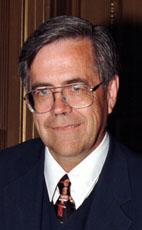Madam Speaker, the member for South Shore said that the opinion the Reform Party was expressing was not the opinion he heard on the streets of British Columbia. I would like to bring his attention to a couple of facts and some questions which were asked of British Columbians.
The first question was: “Do you believe the public has had adequate opportunity to provide input into the Nisga'a treaty?” There were 7,556 people who responded to that question. Of those 88.75% or 6,706 said no.
The second question was: “Do you believe that the people of B.C. should have the right to vote on the principles of the Nisga'a treaty in a provincial referendum?” The number of responses in total were 7,556. Those who said yes totalled 6,923.
In the few minutes the member for South Shore had to talk to people other than those on the gerrymandered witness list, I wonder what percentage he found, how many thousands of people from British Columbia he talked to, and whether it would add up to 90% disapproval as I have just pointed out to him.

